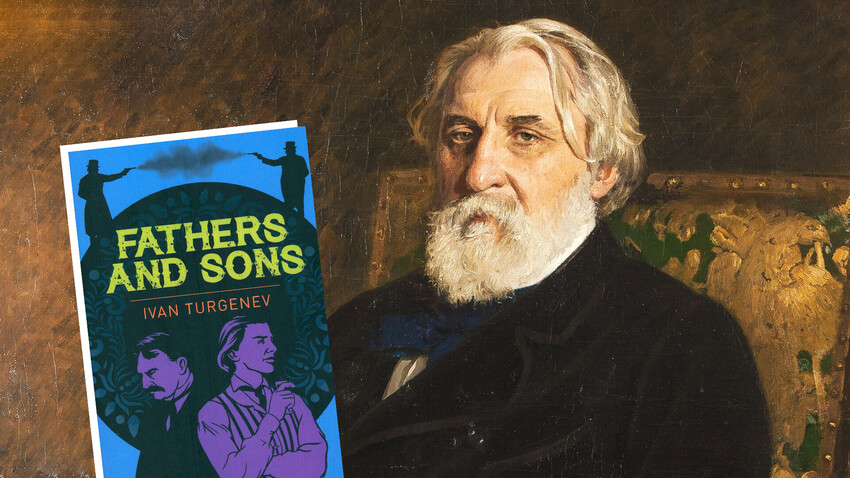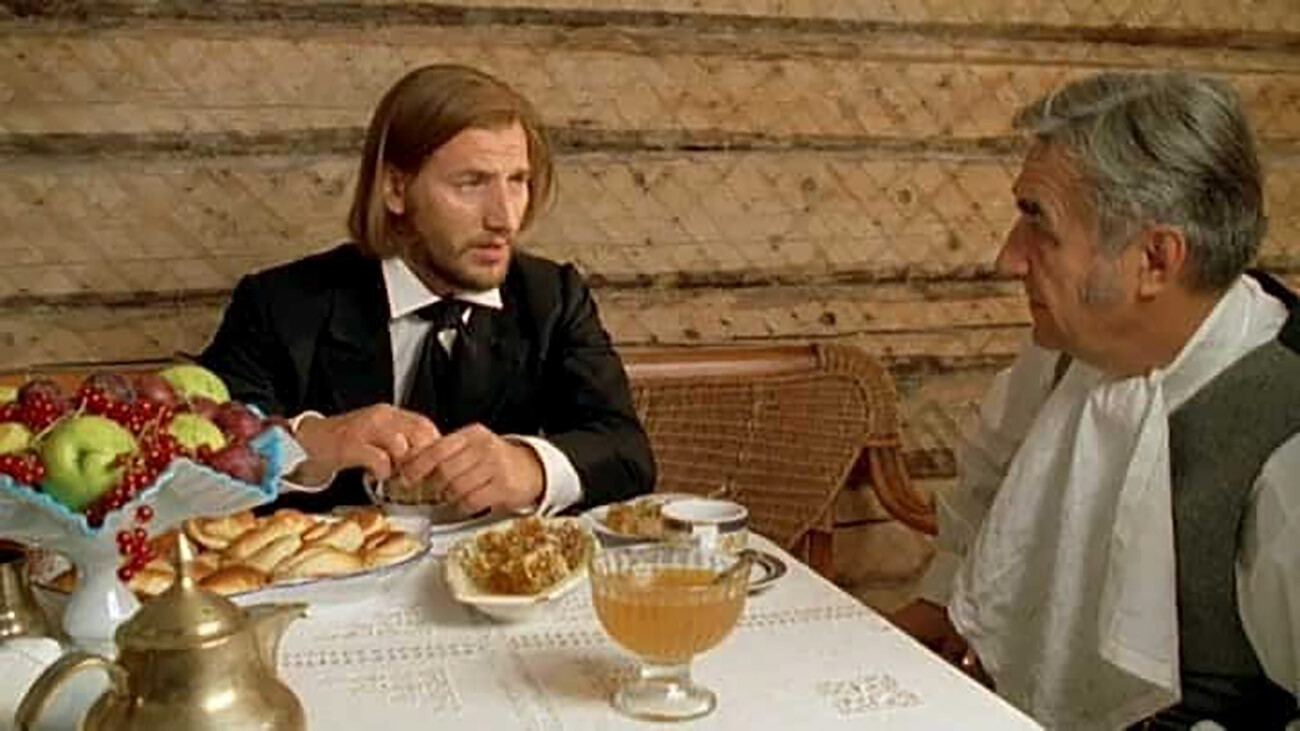
Arkady Kirsanov is a 23-year-old man, just finishing his study in St. Petersburg university. In Spring 1859, he heads off to visit his father and uncle in their provincial country estate. And he doesn’t go alone, but with his best friend, a nihilist and doctor named Yevgeny Bazarov.
Arkady’s father, Nikolai Petrovich, is a soft gentleman, while his uncle, Pavel Petrovich, is a sophisticated and haughty aristocrat. They both are refined nobles, though a little provincial. And they both have an idle lifestyle.
In contrast, Bazarov is a man of progressive view, a little rude and not recognizing any authority or societal rules. He is also a bit gloomy and terse.
Bazarov and Arkady’s uncle constantly argue and the uncle feels incredibly mad with this guy.
In general, the younger generation can’t understand the lifestyle and mindset of the elderly and vice versa. They seem to speak different languages.
Arkady actually has the same idle lifestyle as his relatives, but appears to be under the influence of his friend. So, he feels shy and ashamed of his father and uncle and constantly takes Bazarov's side.

A still from 'Fathers and Sons' series. Bazarov and Arkady's father
Advotia Smirnova/Rekun-Cinema, 2008Eventually, Bazarov and the uncle even have a duel and the latter gets injured. After all the conflicts, Arkady and Bazarov leave the estate.
But, they don’t return to St. Petersburg. They decide to guest at the estate of a woman, a wealthy 28-year-old widow named Anna Odintsova. She is very sophisticated and independent with progressive feminist views. Bazarov and her talk a lot, holding very complicated philosophical and social conversations. And they fall in love with each other. But they stay cold. Bazarov confesses his feelings to her, but she doesn’t respond in kind… She consciously gives up love for a calm life.
Arkady was also in love with Anna, but understood that he wouldn't ever be able to win her heart. So, he marries her sister and they later have a child.
Bazarov's fate, meanwhile, is sad and unfortunate. Day and night he is busy as a doctor aiding people. And he accidentally gets infected with typhus. While dying, he asks Anna to come and she pays a goodbye visit to him.
The final scene is heartbreaking. Bazarov's old parents pray by this gravestone.
Turgenev is one of the first authors to focus on the problem of two generations who don’t understand each other and won’t even try. Now, this issue has, more often than not, been referred to as ‘the problem of Fathers and Sons’.
Russians admit that this problem is eternal and that despite more than a century passing, it’s still very relevant.
Besides telling the main plot, Turgenev depicts a lot of different characters that lived in the mid-19th century. Sometimes, he pokes fun at the individuals, such as a caricatural emancipated woman.
All the events take place on the eve of the abolition of serfdom in Russia and Turgenev shows the old “traditional” people in a negative light.
“My whole story is targeted against the nobility as the advanced class. Take a look at the faces of Nikolai Petrovich, Pavel Petrovich, Arkady. Weakness and lethargy or limitedness,” Turgenev said about his novel.
It seems that the author “kills” Bazarov showing a negative attitude towards him. But, Russian critics consider that this death is full of sense. That he died because he was hard working and did not lead an idle lifestyle. And, eventually, his last wish was to see the woman he truly loved, despite denying that very love before.
Dear readers,
Our website and social media accounts are under threat of being restricted or banned, due to the current circumstances. So, to keep up with our latest content, simply do the following:
If using any of Russia Beyond's content, partly or in full, always provide an active hyperlink to the original material.
Subscribe
to our newsletter!
Get the week's best stories straight to your inbox